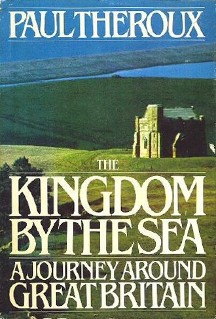
Alfred the Great was King of the West Saxons from 871 to 886, and King of the Anglo-Saxons from 886 until his death in 899. He was the youngest son of King Æthelwulf and his first wife Osburh, who both died when Alfred was young. Three of Alfred's brothers, Æthelbald, Æthelberht and Æthelred, reigned in turn before him. Under Alfred's rule, considerable administrative and military reforms were introduced, prompting lasting change in England.

The British Empire was composed of the dominions, colonies, protectorates, mandates, and other territories ruled or administered by the United Kingdom and its predecessor states. It began with the overseas possessions and trading posts established by England in the late 16th and early 17th centuries. At its height in the 19th and early 20th century, it was the largest empire in history and, for over a century, was the foremost global power. By 1913, the British Empire held sway over 412 million people, 23 per cent of the world population at the time, and by 1920, it covered 35.5 million km2 (13.7 million sq mi), 24 per cent of the Earth's total land area. As a result, its constitutional, legal, linguistic, and cultural legacy is widespread. At the peak of its power, it was described as "the empire on which the sun never sets", as the Sun was always shining on at least one of its territories.

Edgar Allan Poe was an American writer, poet, editor, and literary critic who is best known for his poetry and short stories, particularly his tales of mystery and the macabre. He is widely regarded as a central figure of Romanticism in the United States, and of American literature. He was one of the country's earliest practitioners of the short story, and is considered the inventor of the detective fiction genre, as well as a significant contributor to the emerging genre of science fiction. He is the first well-known American writer to earn a living through writing alone, resulting in a financially difficult life and career.
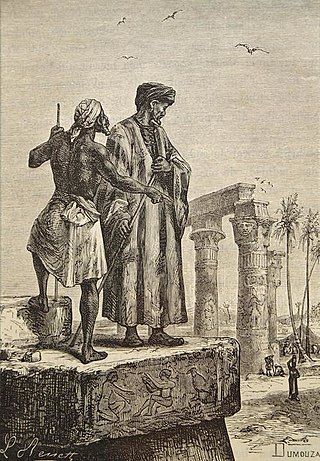
Abu Abdullah Muhammad ibn Battutah, commonly known as Ibn Battuta, was an Arabized Berber Maghrebi scholar and explorer who travelled extensively in the lands of Afro-Eurasia, largely in the Muslim world. He travelled more than any other explorer in pre-modern history, totalling around 117,000 km (73,000 mi), surpassing Zheng He with about 50,000 km (31,000 mi) and Marco Polo with 24,000 km (15,000 mi). Over a period of thirty years, Ibn Battuta visited most of southern Eurasia, including Central Asia, South Asia, Southeast Asia, China, and the Iberian Peninsula. Near the end of his life, he dictated an account of his journeys, titled A Gift to Those Who Contemplate the Wonders of Cities and the Marvels of Travelling, but commonly known as The Rihla.
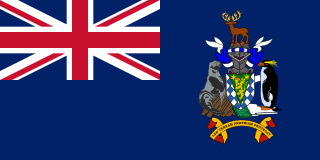
South Georgia and the South Sandwich Islands (SGSSI) is a British Overseas Territory in the southern Atlantic Ocean. It is a remote and inhospitable collection of islands, consisting of South Georgia and a chain of smaller islands known as the South Sandwich Islands. South Georgia is 165 kilometres (103 mi) long and 35 kilometres (22 mi) wide and is by far the largest island in the territory. The South Sandwich Islands lie about 700 kilometres (430 mi) southeast of South Georgia. The territory's total land area is 3,903 km2 (1,507 sq mi). The Falkland Islands are about 1,300 kilometres (810 mi) west from its nearest point.
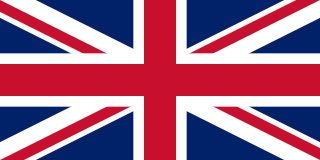
The United Kingdom of Great Britain and Northern Ireland, simply known as the United Kingdom (UK) or Britain, is a country in Northwestern Europe, off the north-western coast of the continental mainland. It comprises England, Scotland, Wales and Northern Ireland. It includes the island of Great Britain, the north-eastern part of the island of Ireland, and smaller islands within the British Isles. Northern Ireland shares a land border with the Republic of Ireland; otherwise, the United Kingdom is surrounded by the Atlantic Ocean, the North Sea, the English Channel, the Celtic Sea and the Irish Sea. The total area of the United Kingdom is 242,495 square kilometres (93,628 sq mi), with an estimated 2023 population of over 68 million people.
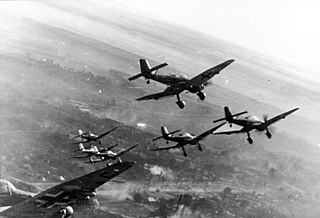
World War II or the Second World War, often abbreviated as WWII or WW2, was a global conflict that lasted from 1939 to 1945. The vast majority of the world's countries, including all of the great powers, fought as part of two opposing military alliances: the Allies and the Axis. Many participants threw their economic, industrial, and scientific capabilities behind this total war, blurring the distinction between civilian and military resources. Aircraft played a major role, enabling the strategic bombing of population centres and the delivery of the only two nuclear weapons ever used in war. World War II was by far the deadliest conflict in history, resulting in an estimated 70 to 85 million fatalities, mostly among civilians. Tens of millions died due to genocides, starvation, massacres, and disease. In the wake of the Axis defeat, Germany and Japan were occupied, and war crimes tribunals were conducted against German and Japanese leaders.
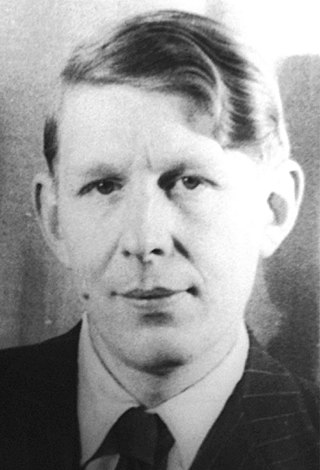
Wystan Hugh Auden was a British-American poet. Auden's poetry was noted for its stylistic and technical achievement, its engagement with politics, morals, love, and religion, and its variety in tone, form, and content. Some of his best known poems are about love, such as "Funeral Blues"; on political and social themes, such as "September 1, 1939" and "The Shield of Achilles"; on cultural and psychological themes, such as The Age of Anxiety; and on religious themes such as "For the Time Being" and "Horae Canonicae".

Ancient Greece was a northeastern Mediterranean civilization, existing from the Greek Dark Ages of the 12th–9th centuries BC to the end of classical antiquity, that comprised a loose collection of culturally and linguistically related city-states and other territories. Most of these regions were officially unified only once, for 13 years, under Alexander the Great's empire from 336 to 323 BC. In Western history, the era of classical antiquity was immediately followed by the Early Middle Ages and the Byzantine period.

John Boynton Priestley was an English novelist, playwright, screenwriter, broadcaster and social commentator.
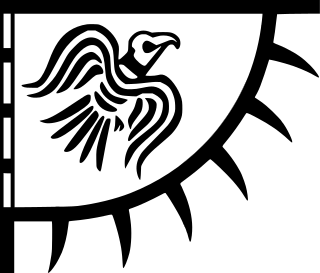
Scandinavian York, Viking York is a term used by historians for, what is now, Yorkshire during the period of Scandinavian domination from late 9th century until it was annexed and integrated into England after the Norman Conquest; in particular, it is used to refer to York, the city controlled by these kings and earls. The Kingdom of Jórvíc was closely associated with the much longer-lived Kingdom of Dublin throughout this period.

"Annabel Lee" is the last complete poem composed by American author Edgar Allan Poe. Like many of Poe's poems, it explores the theme of the death of a beautiful woman. The narrator, who fell in love with Annabel Lee when they were young, has a love for her so strong that even angels are envious. He retains his love for her after her death. There has been debate over who, if anyone, was the inspiration for "Annabel Lee". Though many women have been suggested, Poe's wife Virginia Eliza Clemm Poe is one of the more credible candidates. Written in 1849, it was not published until shortly after Poe's death that same year.

Lezhë is a city in the Republic of Albania and seat of Lezhë County and Lezhë Municipality. It is one of Albania's continuously inhabited cities, with roughly 2,200 years of recorded history.

The Kindertransport was an organised rescue effort of children from Nazi-controlled territory that took place in 1938–1939 during the nine months prior to the outbreak of the Second World War. The United Kingdom took in nearly 10,000 children, most of them Jewish, from Germany, Austria, Czechoslovakia, Poland, and the Free City of Danzig. The children were placed in British foster homes, hostels, schools, and farms. Often they were the only members of their families who survived the Holocaust. The programme was supported, publicised, and encouraged by the British government, which waived the visa immigration requirements that were not within the ability of the British Jewish community to fulfil. The British government placed no numerical limit on the programme; it was the start of the Second World War that brought it to an end, by which time about 10,000 kindertransport children had been brought to the country.
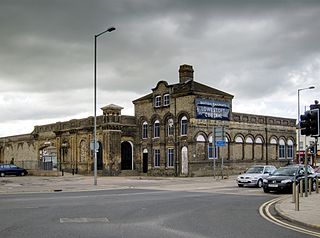
Lowestoft railway station serves the town of Lowestoft, Suffolk. It is the eastern terminus of the East Suffolk Line from Ipswich and is one of two eastern termini of the Wherry Lines from Norwich. Lowestoft is 23 miles 41 chains (37.8 km) down the line from Norwich and 48 miles 75 chains (78.8 km) measured from Ipswich; it is the easternmost station on the National Rail network in the United Kingdom.

No. 489 (NZ) Squadron was a torpedo bomber squadron established for service during the Second World War. It was a New Zealand squadron formed under Article XV of the Empire Air Training Plan. Although many of its flying personnel were largely drawn from the Royal New Zealand Air Force, the squadron served in Europe under the operational and administrative command of the Royal Air Force as part of Coastal Command.

Slavery has historically been widespread in Africa. Systems of servitude and slavery were common in parts of Africa in ancient times, as they were in much of the rest of the ancient world. When the trans-Saharan slave trade, Indian Ocean slave trade and Atlantic slave trade began, many of the pre-existing local African slave systems began supplying captives for slave markets outside Africa. Slavery in contemporary Africa is still practiced despite it being illegal.

Birmingham is a city and metropolitan borough in the metropolitan county of West Midlands in England. It is the second-largest city in the United Kingdom with a population of 1.145 million in the city proper, 2.92 million in the West Midlands metropolitan county, and approximately 4.3 million in the wider metropolitan area. It is the largest UK metropolitan area outside of London. Birmingham is commonly referred to as the second city of the United Kingdom.

The hajj is a pilgrimage to Mecca performed by millions of Muslims every year, coming from all over the Muslim world. Its history goes back many centuries. The present pattern of the Islamic Hajj was established by Islamic prophet Muhammad, around 632 CE, who reformed the existing pilgrimage tradition of the pagan Arabs. According to Islamic tradition, the hajj dates from thousands of years earlier, from when Abraham, upon God's command, built the Kaaba. This cubic building is considered the most holy site in Islam and the rituals of the hajj include walking repeatedly around it.
